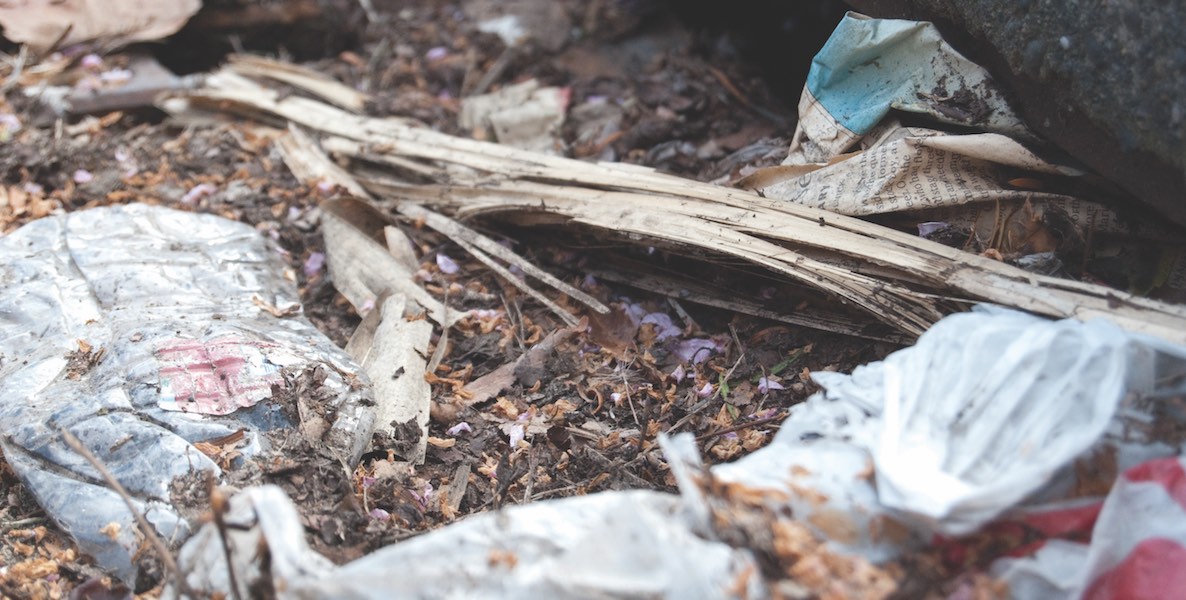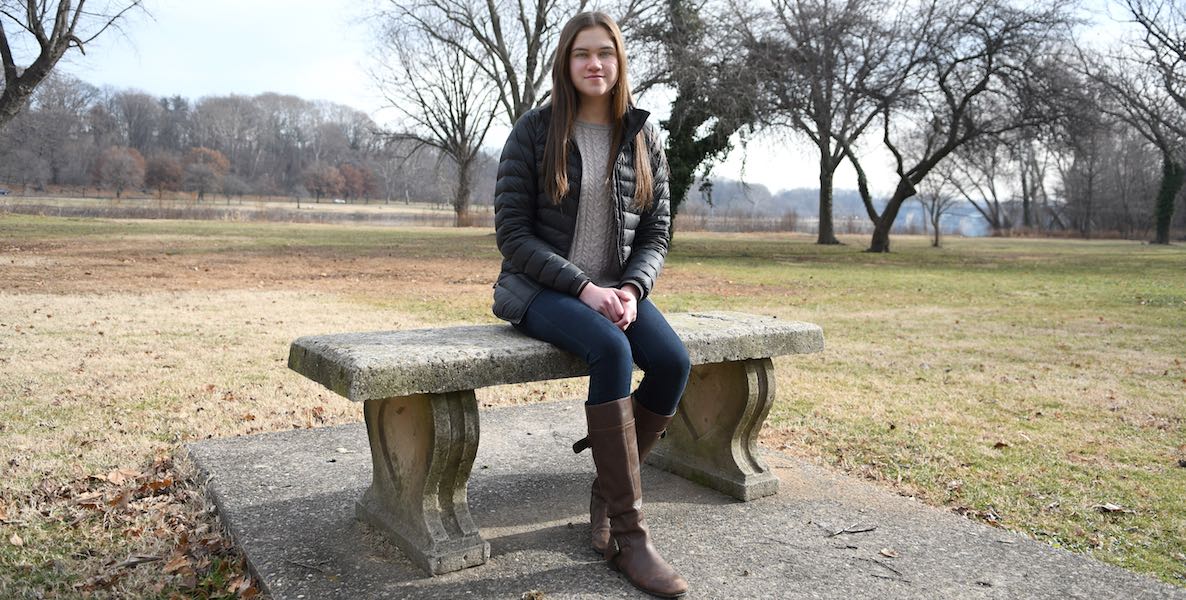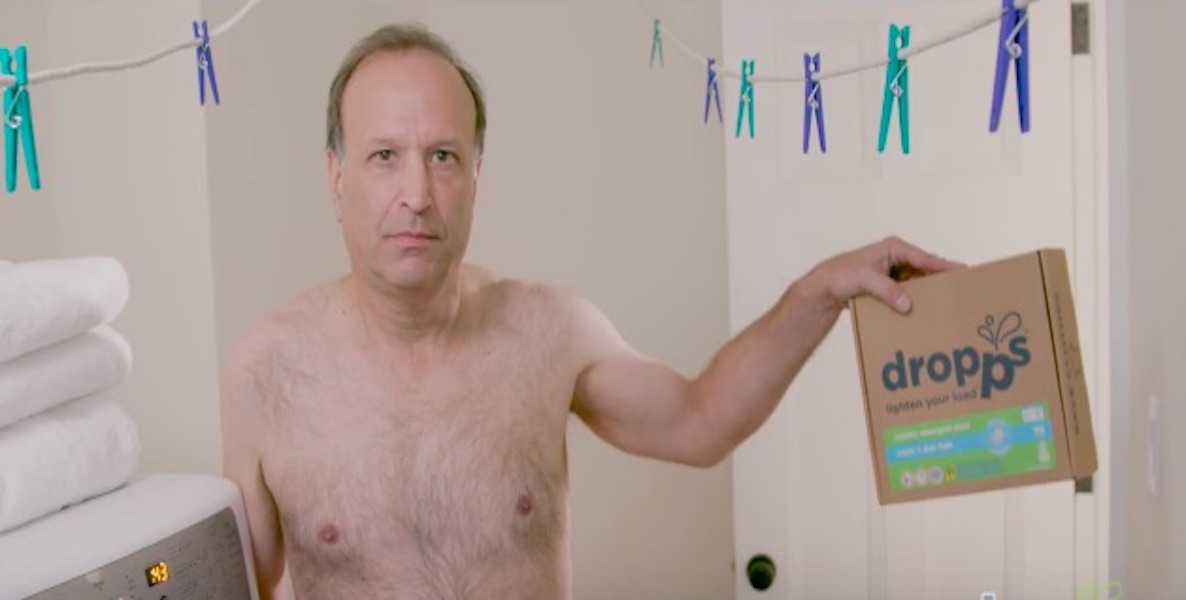Having exhausted the traditional channels of journalistic investigation, one can safely conclude that David S. Taylor—the chief executive officer of Procter & Gamble and, thusly, its subsidiary Tide—has never posed shirtless, on video, in a bathtub, or at the very least posed shirtless, on video, in a bathtub, publicly.
Not so Jonathan Propper, CEO of the Philadelphia-based Dropps detergent company. In a gut-bustingly funny internet commercial (which, for real, watch below), Propper delineates the advantages of his laundry detergent pods versus those of his competitors, while in a bathtub, in the laundry room, at an ironing board and outside by a mailbox in what appears to be the buff. It’s two minutes of a shirtless Propper, delivering what he calls “the naked truth.”
Propper did not disclose whether he wore pants during the filming. How much convincing did it take Propper to take it all off for his company?
“Oh, none at all,” he says. “As soon as I heard the idea I was totally on board.”
Hardcore nudity isn’t the only thing Propper has on Tide’s CEO. Dropps’ trademark safe, eco-friendly laundry detergent pods received the 2017 Safer Partner Choice of the Year Award from the Environmental Protection Agency. Dropps pods, which are manufactured in Chicago, are all plant-based, with no phosphates, chlorine or testing on animals. The EPA cited Dropps’ lack of artificial dyes, totally recyclable cardboard box and said box’s child-safety latch. (The box, Propper says, is actually a big selling point for some people, who want to avoid those clunky non-biodegradable plastic jugs).
Propper says the award is an honor, especially now. “I mean, who knows if the EPA will even exist next year,” he jokes.
Tide may be the better-known brand, but Dropps’ pods actually predate the laundry behemoths by several years. Propper and his family, have been tangentially in the laundry game for ages. Propper co-owned his first fabric company with his mother, Lenore Propper Schwartz, in the early 80’s, and has worked in fabrics, textiles and detergents for more than 30 years. Even after all this time, the fabrics business hasn’t at all worn on Propper, who is an admittedly out-there kind of guy.
Dropps’ safe, eco-friendly laundry detergent pods received the 2017 Safer Partner Choice of the Year Award from the Environmental Protection Agency. Dropps pods, which are manufactured in Chicago, are all plant-based, with no phosphates, chlorine or testing on animals.
Sometimes, he says, he thinks faster than he can talk, and has to wait for his words to catch up with his thoughts; he cracks dry jokes constantly; and he readily admits that he has a propensity for being “that guy.” On top of it all, he’s downright proud to be a fabrics-and-laundry guy; he talks about the industry as though he were some super-junior app creator at his first major tech conference. Dropp’s website description of Propper and company says it best: “We like to think of ourselves as textile engineers-turned-detergent scientists.”
“Our background was in cotton spinning and dyeing,” he explains. “I had a company called Conshohocken Cotton Company, and there was a time when it was very hard to take care of a cotton sweater. You had to hand-wash it. The methodology was difficult at the time. And so my mother, actually, helped to develop a way to wash for cotton, which became the basis for our detergent company. That detergent company, Cot’nwash, Inc., was a precursor to Dropps: It was biodegradable and low-sudsing, and Consumer Reports named it the number one hand-laundry detergent.
Propper eventually sold both Conshohocken Cotton Company and Cot’nwash. By then, he’d already begun developing the idea for Dropps.
The notion largely stemmed from Propper’s ability to listen. The issue was originally brought up by his then-wife, Nina Swift. While working with Propper at Cot’nwash, Swift complained that she was sick and tired of having to measure the detergent for different types and loads of laundry; she said she often miscalculated the amount of detergent necessary for the load. Propper, as a result, wanted to find a more efficient way for consumers to do their laundry, and provide them with a one-size-fits all approach that you can’t get with powder or liquid detergent.
And to be competitive with the big guys, he’d have to come up with something innovative.“We ended up looking into technology that had been used for years in the janitorial business,” Propper says. Soluble plastics and polymers had long been used by custodians, but hadn’t yet been adopted by the laundry industry. “We purchased the patent and branded it.”
“Dwindling retail sales were actually a blessing in disguise. In 2012, Dropps made what would then be considered a pretty ballsy move, moving the entirety of their sales to a direct-to-consumer, online sales approach.With the online-only model that Dropps has adopted, the company has become an international business as well, sending its pods to Europe, Canada and South Korea.”
Dropps first began hawking their detergent packs in 2005, and truly had the market cornered for a while. Pretenders to the crown appeared, but they were largely off-brand competitors, nothing that could slow Dropps’ flow. And then, in 2012, Tide got into the game.
Dropps’ brick and mortar sales numbers dropped precipitously due to the vicious game of thrones that is the retail world. As Tide broke into the market with its own laundry pod brand, Dropps were moved to the top of the shelf and away from consumer eye-level; for those unfamiliar with what bad shelf placement can do to a product, think of it as the retail version of how the candidate listed on the top of a ballot has an advantage solely because said candidate is the first thing the voter sees. “The retail game is a scam,” Propper bristles. “It’s built for these big companies like Tide.”
Simultaneously, as the Tide pods grew in popularity, stores began to order fewer and fewer boxes of Dropps for sale. Propper’s still a little salty about his de facto retail banishment. “I always ask, what are America’s two favorite brands of detergent? Tide and whatever’s cheapest,” he says, with a bit of venom.
But dwindling retail sales were actually a blessing in disguise. In 2012, Dropps made what would then be considered a pretty ballsy move—moving the entirety of their sales to a direct-to-consumer, online sales approach. “Moving online has exploded our business,” says Propper. “I mean, exploded in a positive way.”
Propper’s company allows for potential customers of Dropps to take advantage of a free trial of the laundry pods. The smallest quantity of Dropps pods available through the website is 56; the largest is 804, which is the kind of order you’d normally have to make through a wholesale supplier website. And Dropps has a whole range of other products, from fabric softener to dishwasher detergent. With the online-only model that Dropps has adopted, the company has become an international business as well, sending its pods to Europe, Canada and South Korea.
But it’s the eco-friendliness of Dropps that Propper takes the most pride in—and gives him another reason to grouse about his Goliath competitor.
Laundry pods, which became en vogue at around the turn of the decade, have proven to be a remarkably dangerous household item. The pods themselves are multicolored—Tide’s are orange and blue, of course—and children regularly mistake them for candy. Hundreds of kids go the emergency room every year after ingesting some sort of laundry pod. Some have suffered cardiac arrest, and a few have even died. According to the medical journal Pediatrics, more than 22,000 kids in 2013 received emergency treatment for exposure to laundry or dish detergent pods. Similarly, kids are routinely suffering chemical burns on and around the eyes from playing with detergent pods.
At least three class-action lawsuits have been filed against Procter & Gamble for injuries related to Tide’s laundry pods. And yet, more than five years after their introduction, Tide pods look almost exactly the same as they did when they first went to market. They are, as Propper notes, poison that is marketed to look exactly like candy; replace the contents of a bucket of candy in a bodega with Tide pods and see how many kids buy it (note: please don’t actually do that, it’s a hypothetical; instead, refrain from keeping Tide pods in the house until your kids are above the age of six. The Citizen… cares).
Dropps, in spite of their playful marketing, are boring—in a good way. They’re translucent, unmarked, and bear no color. They can come in unscented form and are dye-free. While ingesting one would certainly make you sick, Propper says that kids are far less likely to ingest something so, well, insanely unappealing. To this point, Dropps hasn’t had a single complaint or notification of poisoning related to their product.
Or, as Propper puts it in his commercial, Dropps are “so free it’s freaking awesome.”
John Propper, Dropps CEO






